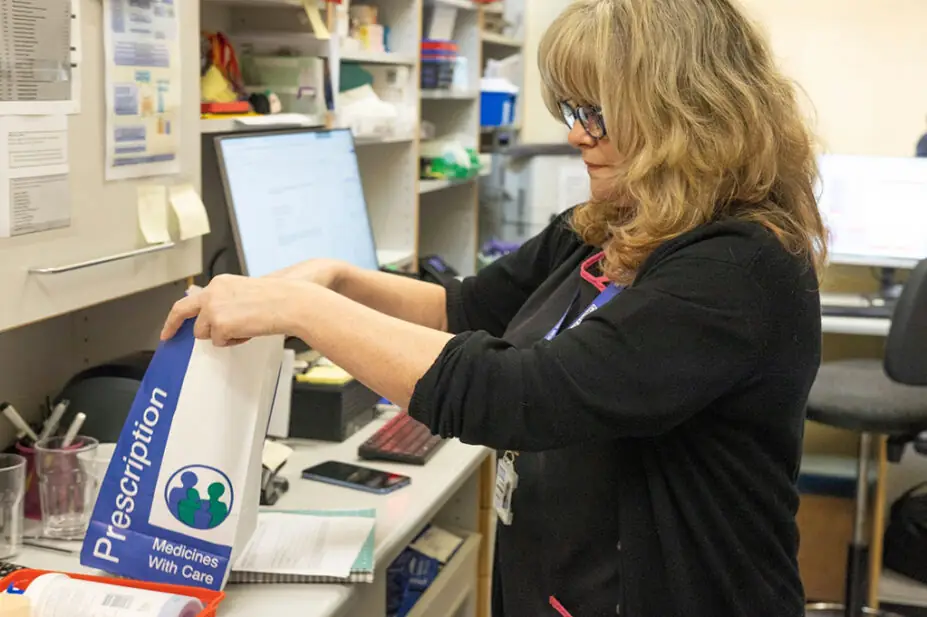
Connect Images / Alamy Stock Photo
The Scottish government has confirmed plans to replace paper prescriptions with a digital prescribing system by 2026.
The system is being developed as part of the ‘Digital prescribing and dispensing programme‘ (DPDP) — a joint initiative between NHS National Services Scotland and NHS Education for Scotland — aimed to make prescribing and dispensing paper-free.
In 2009, Scotland introduced the ‘Electronic acute medication service‘ (eAMS) across 99% of GP practices and pharmacies, which allowed prescriptions to be submitted electronically. However, patients continued to receive a paper prescription with a unique barcode.
The DPDP, published on 24 September 2024, is aimed to introduce an ‘advanced electronic signature’ that will replace the wet signature on prescriptions.
On 26 September 2024, speaking at an event marking the 120th anniversary of Boots in Scotland, Neil Gray, Scottish cabinet secretary for health and social care, said he was aware that the need for a wet signature as part of the medicines prescribing and dispensing process “is a key concern of colleagues” in community pharmacy.
“Initial planning for the implementation of the [DPDP] programme and a supporting wraparound service have started,” he said.
“This output will inform the resources needed to deliver the removal of paper from GP practice prescribing and community pharmacy dispensing and enable the initiation of discussions on how to deliver paperless prescribing in the remaining areas of community-based practice.”
A spokesperson for the Scottish government told The Pharmaceutical Journal on 2 October 2024: “[We are] pleased that as part of our investment in technology to support community pharmacy teams to deliver their services, a DPDP will replace paper prescriptions and associated electronic prescription messages in 2026.”
At the event, Gray also said that the Scottish government “will continue to enhance our Pharmacy First programme so that a wider range of health conditions can be covered”.
“This will help to alleviate pressure on other aspects of our health service, GPs and emergency departments, and further transfer the care of common clinical conditions to community pharmacy for everyday self-limiting conditions,” he added.
NHS Pharmacy First was most recently expanded in Scotland in August 2023, with the addition of a patient group direction (PGD) for hay fever.
The service was originally launched in July 2020 with PGDs for uncomplicated urinary tract infections and impetigo. PGDs for shingles and skin infections were added in June 2021.
You may also be interested in

Reviewing prescribing practice in an adult critical care unit with a newly implemented electronic prescribing system
